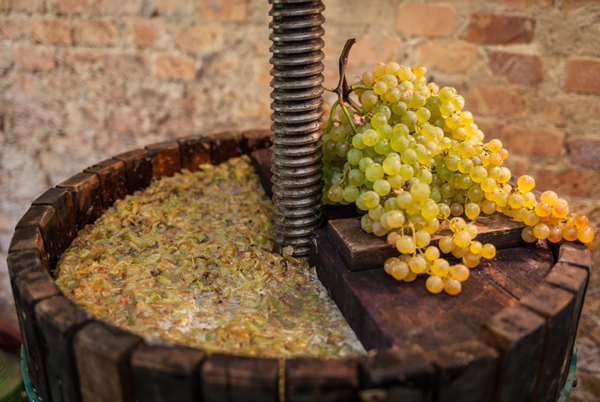When you think of grapes, wine might be the first thing that comes to mind. But there's more to grapes than just wine. The remnants of winemaking, known as grape pomace (or, more commonly, marc), are proving to be a goldmine for health enthusiasts and sustainability advocates alike. Thanks to Dr. Daniela Barile and her team at the University of California, Davis, their exhaustive review synthesizes numerous studies that uncover the immense health potential of this winemaking co-product.

What is Grape Pomace?
Grape marc is primarily composed of grape seeds and skins left over from winemaking. Often overlooked, this co-product is a powerhouse of nutrients and bioactive compounds, including phenols and oligosaccharides. Dr. Barile's study, titled Uncovering the promising role of grape pomace as a modulator of the gut microbiome: An in-depth review, reveals its rich nutritional profile. Packed with alpha-linolenic acids (ALA), a type of omega-3 fatty acid, as well as soluble fiber, grape marc stands out as a heart-healthy and gut-friendly ingredient.

A Boon for Gut Health
One of the most remarkable aspects of grape marc is its interaction with our gut microbiome. The gut microbiome, a complex community of microorganisms in our digestive system, plays a crucial role in our overall health. The bioactive compounds in grape marc mostly reach the colon intact, where they can work their magic.
Studies have shown that grape marc selectively promotes the growth of beneficial bacteria strains in our gut. This is crucial because a healthy gut microbiome is linked to numerous health benefits, including improved digestion, enhanced immune function, and even better mental health.

Boosting Beneficial Bacteria
Further, the research found that grape marc boosts beneficial bacteria like Bifidobacterium and Lactobacillus. These findings underscore the potential of grape marc as a natural probiotic source, promoting a healthier gut ecosystem.

Battling the Bad Bacteria
The UC Davis review also sheds light on grape marc's ability to combat harmful bacteria. Grape marc doesn't just boost the good guys in our gut; it also combats the bad. Various pathogens, including some harmful bacteria, are highly sensitive to the components of grape marc. In vitro studies (experiments conducted in a controlled environment outside of a living organism) have demonstrated that grape marc and its extracts can inhibit the growth of pathogenic bacteria in the Enterobacteriaceae family. This family includes many well-known culprits of foodborne illnesses.

Impacts on Obesity and Related Illnesses
The potential health benefits of grape marc go beyond gut health. Animal studies involving mice and rats have shown that grape marc supplementation helps in reducing diet-induced obesity and related illnesses, such as insulin resistance. This is incredibly important, since research from the University of North Carolina at Chapel Hill, only 12.2% of Americans are metabolically healthy, meaning about 88% of us have some degree of insulin resistance—which doesn’t ever reverse itself without lifestyle, dietary, and sometimes pharmacological interventions. The findings of Dr. Barile’s research team suggest that grape marc could be a valuable addition to human diets for managing weight and associated health issues.

Cardioprotective Effects
A human clinical trial has shed light on the cardioprotective effects of grape marc. Interestingly, these benefits seem to be linked to the dietary fiber in the pomace rather than its phenolic content. This suggests that grape marc could be a valuable dietary addition for heart health.
Conclusion
Dr. Daniela Barile's research at UC Davis brings to light the multifaceted health benefits of grape marc. From improving gut health to combating obesity and enhancing heart health, grape marc emerges as a promising functional ingredient. As we continue to explore its potential, grape marc—particularly the marc from the Coastal Chardonnay grapes used in the study--- stands out as a superfood while at the same time exemplifying sustainable innovation in the food industry.
Read the full study here.


